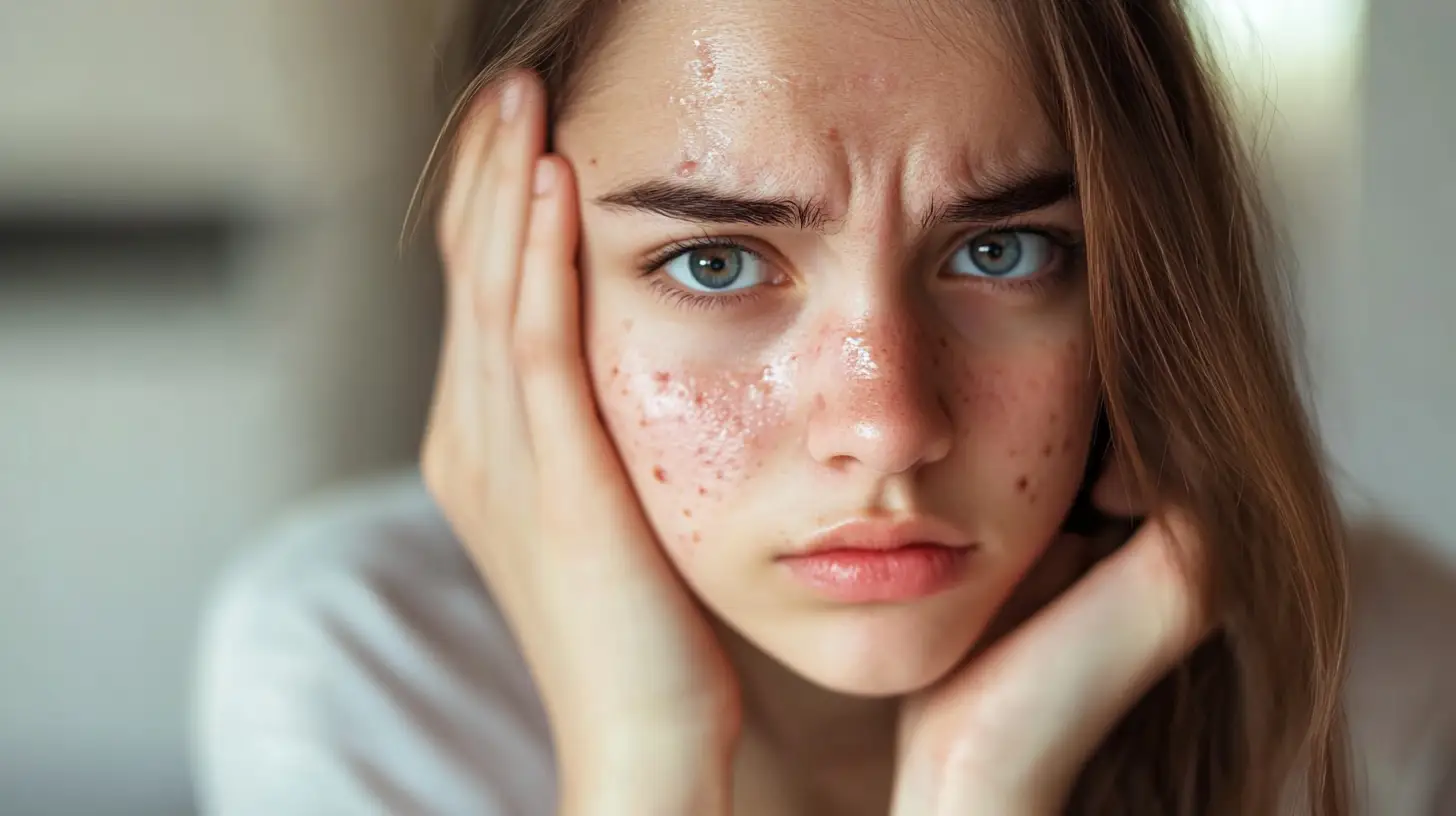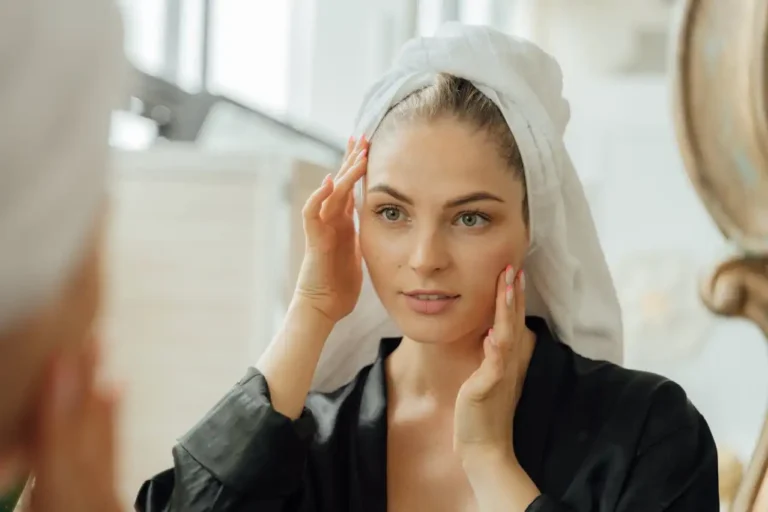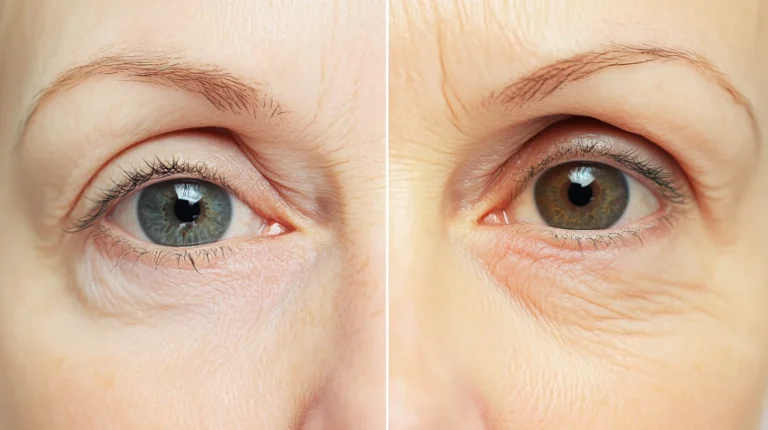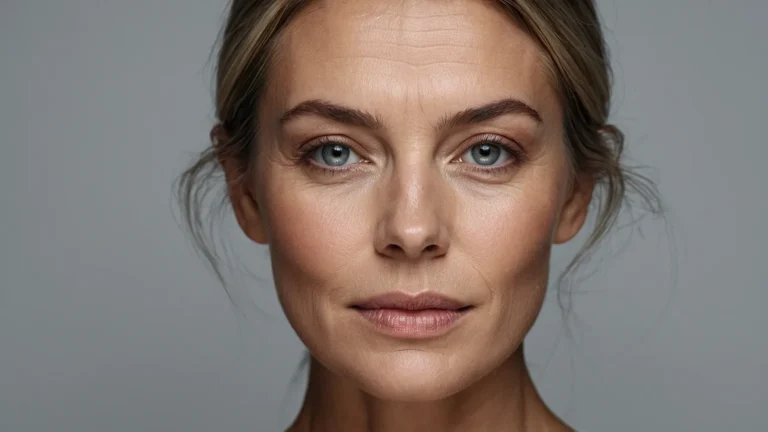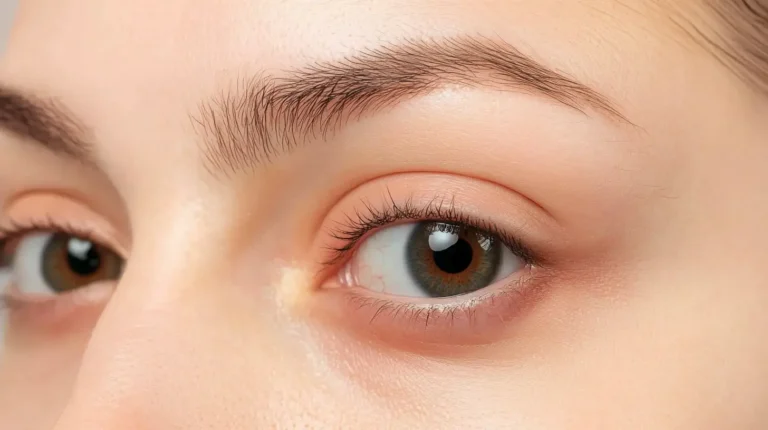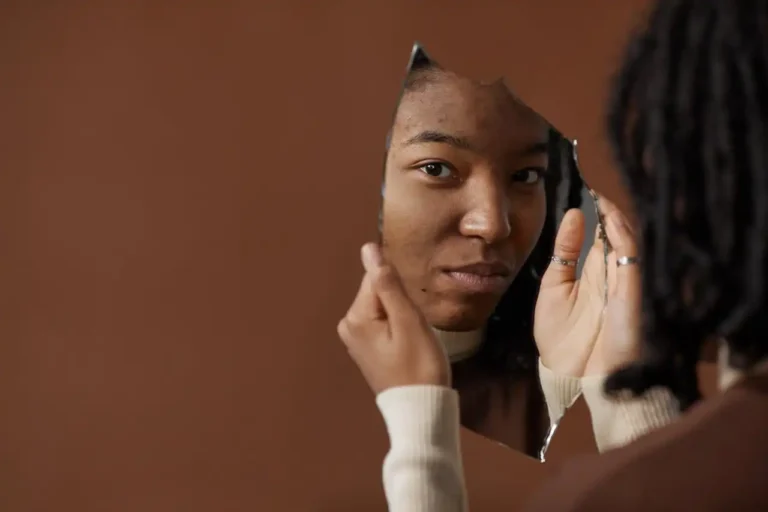Understanding And Treating Different Types Of Acne
Acne is a common skin condition that affects millions of people. It happens when hair follicles get clogged with oil and dead skin cells.
Different types of acne need different treatments.
You can get acne from hormonal changes, excess oil production, or bacteria on your skin. Knowing what kind of acne you have helps you pick the right treatment.
Identifying Different Types of Acne
Acne comes in several forms. Knowing what type you have is key to finding the right treatment.
Let’s look at the main kinds of acne on your skin.

Non-Inflammatory Acne: Whiteheads and Blackheads
Whiteheads and blackheads are common types of acne. They’re called comedones and are non-inflammatory.
Whiteheads form when a pore gets clogged and closes up. They look like tiny, flesh-colored bumps on your skin.
You can’t squeeze out the gunk inside.
Blackheads happen when a clogged pore stays open. The black color comes from oil reacting with air. Despite myths, it’s not dirt.
Both types often show up on your face, chest, and back. They’re less severe than other acne but can be annoying. Gentle cleansing and exfoliating can help manage them.
Inflammatory Acne: Papules, Pustules, Nodules, and Cysts
Inflammatory acne is red and swollen. It can be painful and leave scars.
Papules are small, red bumps. They feel hard when you touch them. Pustules are like papules but have pus at the tip.
Nodules are larger, deeper bumps.
They’re firm and can hurt. Cysts are the most severe type. They’re big, soft, and filled with pus.
These types need more care than comedones. Don’t try to pop them – it can make things worse. For nodules and cysts, you might need help from a doctor.
Different treatments work for different types. Knowing what you have helps you pick the right one.
Causes and Trigger Factors of Acne
Acne has many causes and triggers. These range from things inside your body to outside factors in your daily life.
Hormonal Fluctuations and Genetic Factors
Your hormones play a big role in acne. During puberty, your body makes more androgens. These hormones increase oil in your skin, which can clog pores.
Women often get acne before their period due to hormone changes. Pregnancy can also cause breakouts.
Some people are more likely to get acne because of their genes. If your parents had acne, you might get it too.
Lifestyle Aspects: Diet, Stress, and Medications
What you eat may affect your skin. Foods high in sugar and dairy might make acne worse for some people.
Stress can trigger acne or make it worse. When you’re stressed, your body makes more oil.
Some medicines can cause acne as a side effect. Birth control pills, steroids, and lithium are examples.
Touching your face a lot or using oily products can clog your pores. Tight clothes or sports gear can also irritate your skin and cause breakouts.
Comprehensive Acne Treatment Approaches

Treating acne effectively involves a range of options tailored to your specific needs.
From over-the-counter products to prescription medications and professional procedures, many ways exist to address different types of acne.
Topical Treatments: Retinoids, Benzoyl Peroxide, and More

Topical treatments are often the first line of defense against acne. Retinoids like tretinoin help unclog pores and reduce inflammation.
You can apply them at night after cleansing.
Benzoyl peroxide kills acne-causing bacteria and can be found in many cleansers and spot treatments. Start with a low concentration to avoid irritation.
Salicylic acid exfoliates the skin and unclogs pores. It’s great for oily skin types.
Niacinamide reduces inflammation and oil production. Look for it in serums or moisturizers.
Use a combination of these ingredients in your skincare routine for best results. Be patient, as it can take several weeks to see improvements.
Systemic Approaches: Antibiotics and Hormonal Therapies
When topical treatments aren’t enough, your doctor may recommend oral medications. Antibiotics like doxycycline fight P. acnes bacteria from the inside out.
For hormonal acne, birth control pills can help regulate oil production. Spironolactone is another option for women with persistent acne.
Isotretinoin is a powerful oral medication for severe cystic acne. Close monitoring is required due to potential side effects.
These treatments often work best when combined with a good skincare routine. Your doctor can help you find the right balance.
Professional Procedures: Chemical Peels and Laser Therapy

For stubborn acne, professional treatments can provide extra help. Chemical peels remove dead skin cells and unclog pores.
They can improve skin texture and reduce acne breakouts.
Laser therapy targets oil glands and kills bacteria. It can be effective for both active acne and leftover scars.
For painful cystic acne, corticosteroid injections can quickly reduce inflammation and swelling.
Dermatologists or skincare professionals usually do these procedures. They often work best as part of a comprehensive treatment plan that includes at-home care.
Managing Acne-Prone Skin and Preventing Scars
Taking care of acne-prone skin requires a careful approach.
You can prevent scars by treating acne early and using the right products.
Skincare Routine for Acne Prevention

Start with a gentle cleanser twice daily. Use lukewarm water and pat your face dry. Apply a non-comedogenic moisturizer to keep your skin hydrated.
Look for products with salicylic acid or benzoyl peroxide. These fight bacteria and unclog pores. Use them as spot treatments or in your daily routine.
Exfoliate once or twice a week to remove dead skin cells. Be gentle to avoid irritation. Choose chemical exfoliants like AHAs or BHAs over harsh scrubs.
Don’t forget sunscreen! UV rays can darken acne marks. Pick a light, oil-free formula that won’t clog your pores.
Avoid touching your face, and clean your phone regularly. These habits help reduce bacterial growth on your skin.

Treatment Options for Acne Scars
For mild scarring, try over-the-counter products with retinol or vitamin C. These can help fade dark spots and smooth skin texture.
Prescription treatments like tretinoin or azelaic acid can be more effective. They boost cell turnover and reduce pigmentation.
For deeper scars, talk to a dermatologist about professional treatments. Options include:
- Chemical peels
- Microneedling
- Laser therapy
- Dermabrasion
These procedures can improve skin texture and reduce the appearance of scars. Results vary, and you may need multiple sessions.
Some people benefit from corticosteroid injections for raised scars. This can help flatten keloids or hypertrophic scars.
Remember, prevention is key. Treat active acne promptly to minimize scarring. Don’t pick or squeeze pimples, as this can lead to more damage.
Frequently Asked Questions
Acne is a complex skin condition with many types and treatments.
Let’s explore common questions about acne causes, types, and management strategies.
What are the typical treatments recommended by dermatologists for different types of acne?
Dermatologists often suggest benzoyl peroxide or salicylic acid for mild acne. These ingredients are found in many over-the-counter products. For moderate to severe acne, prescription treatments may be needed.
A doctor can prescribe retinoids, antibiotics, and other medications. These target more stubborn or widespread acne.
Your dermatologist will choose the best option based on your acne type and severity.
How can I differentiate between hormonal and bacterial acne?
Hormonal acne often appears on the lower face, jawline, and neck. It tends to flare up around your menstrual cycle. Bacterial acne can occur anywhere on the face or body.
Hormonal breakouts are usually deep, painful cysts. Bacterial acne includes various types like whiteheads, blackheads, and pustules. If you’re unsure, a dermatologist can help identify your acne type.
What is the most challenging type of acne to treat, and why?
Cystic acne is often seen as the most difficult to treat. It forms deep under the skin and can be very painful. Cysts are less responsive to topical treatments because they’re so deep-rooted.
This type of acne is more likely to cause scarring. It often requires stronger medications or combinations of treatments. Professional help is usually needed to manage cystic acne effectively.
Are there effective natural remedies for curing acne within a few days?
No proven natural remedies can cure acne in just a few days. Acne takes time to heal, usually weeks or months.
Some natural ingredients may help reduce inflammation or oil production.
Tea tree oil, green tea, and aloe vera have shown some benefits. But they’re not quick fixes. Consistent skin care and patience are key for any acne treatment, natural or not.
What are the main categories of acne and their distinct characteristics?
Acne is divided into two main categories: non-inflammatory and inflammatory. Non-inflammatory acne includes whiteheads and blackheads. These are small, usually not painful bumps.
Inflammatory acne types are papules, pustules, nodules, and cysts. These are red, swollen, and often painful. They can range from small red bumps to large, deep cysts.
How can I prevent the onset of new acne breakouts on my face?
To prevent new breakouts, keep your face clean. Wash twice daily with a gentle cleanser. Don’t touch your face too much, as this can spread bacteria.
Use non-comedogenic products that won’t clog pores. Also, manage stress and eat a balanced diet. If acne persists, talk to a dermatologist about preventive treatments.

